The Importance of Oral Health Guidance & Dental Care
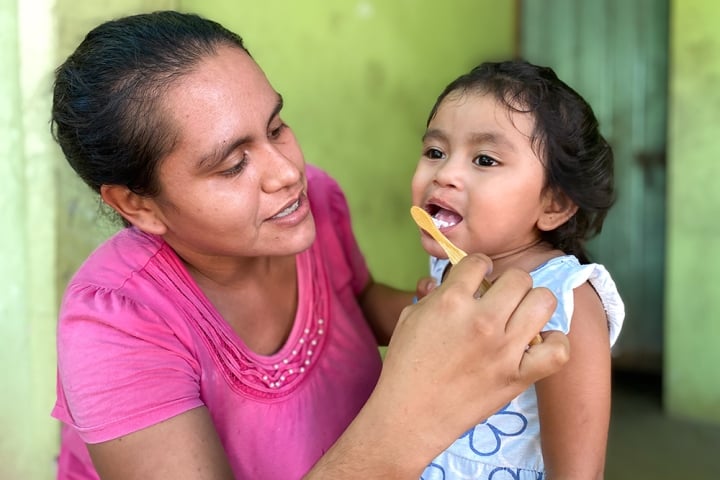
FDI and Haleon: Thank You, Dentists!
Children with clefts are more likely than their peers to experience poor oral health, including tooth decay, gum diseases, dental anomalies, and crooked teeth. Each of these problems is made exponentially worse by the marginalization and lack of access to general dental care so many of them suffer. Quality, specialized dental care is key to helping children with clefts maintain a happy, healthy smile, even after surgery.
Supported by

Smile Train, Haleon, Dentsply Sirona, and FDI World Dental Federation (FDI) have compiled the following resources outlining best practices for oral health and dental care in cleft lip and palate patients. Through them, we hope to give every member of the cleft team a comprehensive cleft care education with a focus on cleft dental care.
- Guidelines for Oral Health Professionals and the Wider Cleft Care Team
- Oral Health in Comprehensive Cleft Care for Oral Health Professionals
- Oral Health in Comprehensive Cleft Care for Cleft Care Teams
- Digital Dentistry in Cleft Care
- Train of Trainers for Oral Health Professionals
- Train of Trainers for Non-Oral Health Professionals
Oral Health Care
A Partnership for Change
FDI, Smile Train, and Haleon further joined forces to create guidelines for both oral health and non-oral health professionals on the importance of preventative and comprehensive dental care for people with clefts.
Download the guidelines today:
Chinese, Portuguese, English, Russian, French, Spanish, Indonesian, Vietnamese
Massive Open Online Course (MOOC)
Learn more about the role of oral health in comprehensive cleft care in this three-hour online course, which includes units on prevention, common oral health problems, and oral health care.
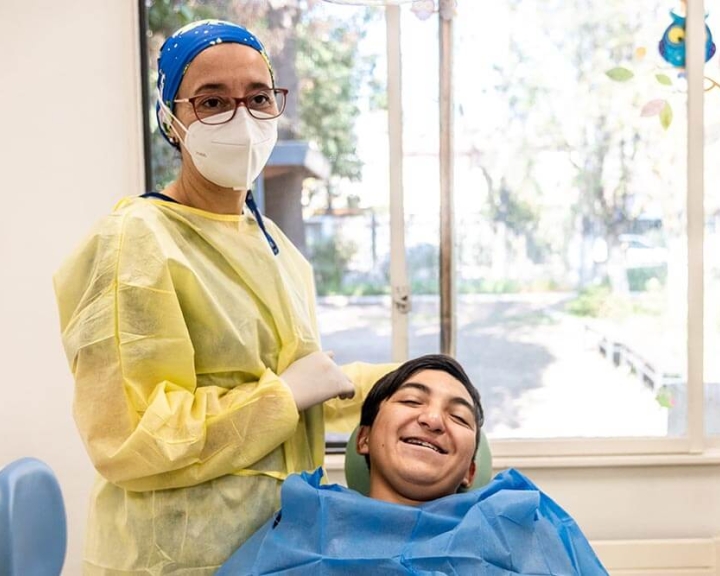
Oral Health in Comprehensive Cleft Care for Oral Health Professionals
This course introduces oral health professionals to the basics of comprehensive cleft care. It is divided into three modules: Introduction to Comprehensive Cleft Care, Common Oral Health Problems, and Providing Oral Health Care for the Cleft Patient.
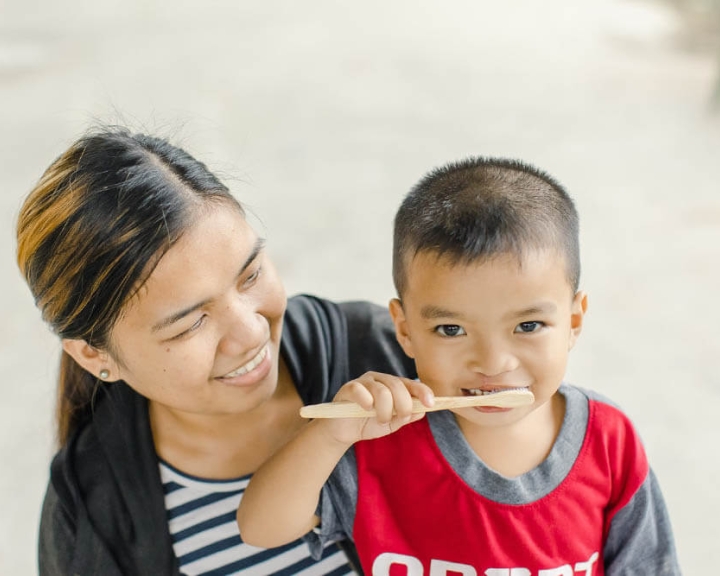
Oral Health in Comprehensive Cleft Care for Cleft Care Teams
This course introduces non-oral health professionals to the basics of comprehensive oral health care for cleft patients. It is divided into three modules: Introduction to Comprehensive Cleft Care, Basics of Oral Health, and Basics of Oral Health Care for the Cleft Patient.
Massive Open Online Course (MOOC) on Digital Dentistry in Cleft Care
This Massive Open Online Course (MOOC) on Digital Dentistry in Cleft Care was developed in collaboration with FDI and supported by Dentsply Sirona.
By the end of the 4.5-hour course, students will understand both the patient journey through a digitalization care pathway and the role digitalization will play in the future of dentistry.
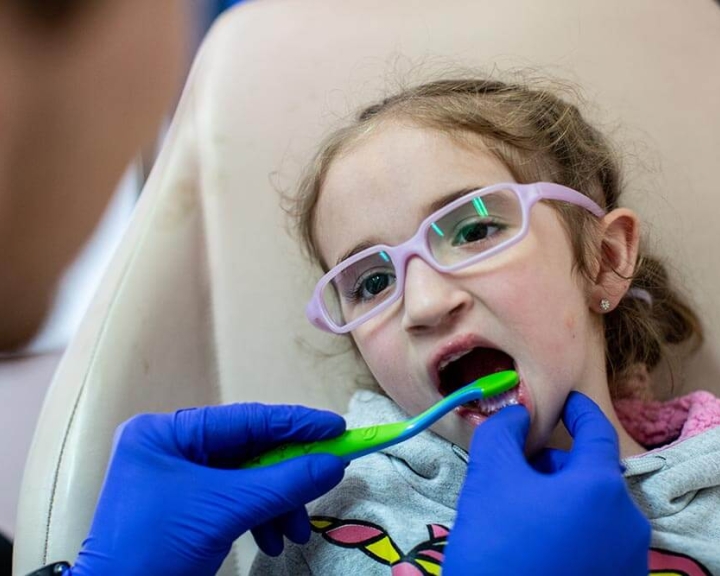
Digital Dental Care
In this course, members of the FDI Digital Cleft Care Task Team, in collaboration with Smile Train liaison experts, provide guidance and scientific expertise on how to soundly implement the latest digital technologies into the cleft care continuum. It is divided into three modules: Introducing Digital Dentistry in Comprehensive Cleft Care, The Journey of Patients Born with Clefts, and Opportunities and Challenges in Digital Cleft Care.
Protocols for the digital workflow in cleft care during the infancy stage
This video was developed to demonstrate the digital workflow for infants with clefts. It uses real patients to showcase how computer-aided manufactured (CAM) devices employing milling or 3D printing technology can enhance treatment procedures.
Digital workflow in cleft care during the mixed dentition stage
This video was developed to demonstrate the digital workflow for children with clefts with mixed dentition. It uses real patients to showcase how CAM devices employing milling or 3D printing technology can enhance treatment procedures.
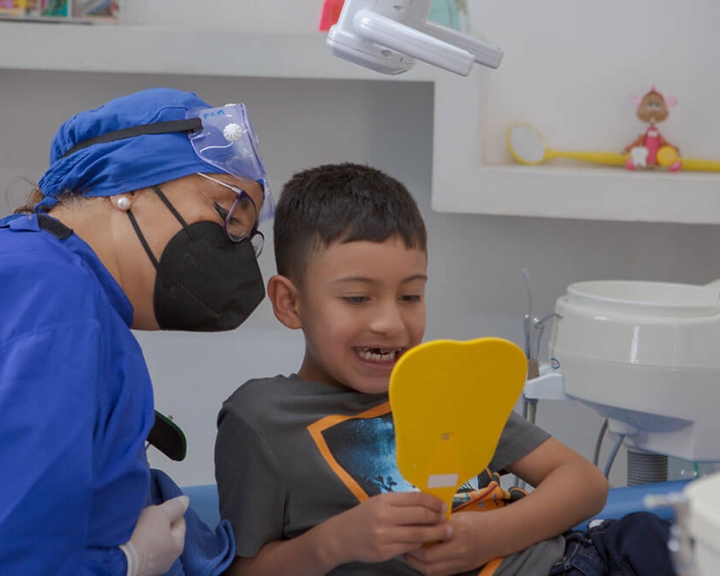
For Oral Health Professionals
A cleft team is incomplete without an oral health professional. If that is you, these resources will help you understand the unique needs of your patients with clefts.
Participant:
Arabic, Bahasa Indonesia, Chinese, English, French, Portuguese, Spanish, Vietnamese
Trainer:
Arabic, Bahasa Indonesia, Chinese, English, French, Portuguese, Spanish, Vietnamese
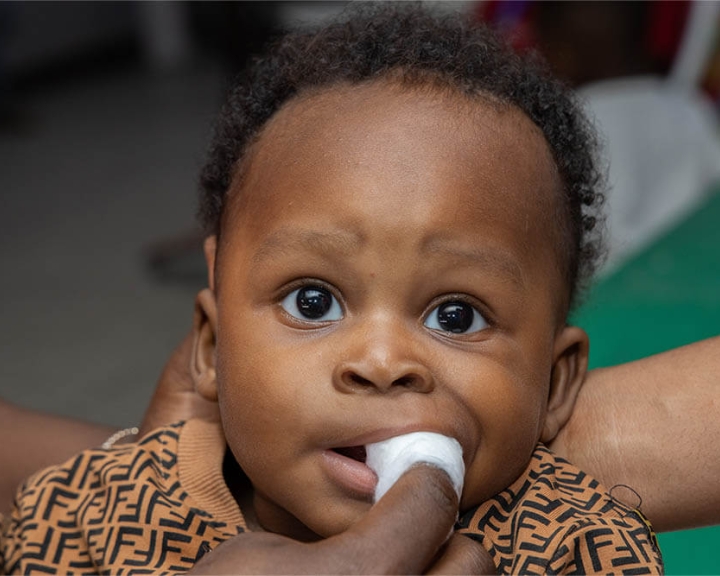
For Non-Oral Health Professionals
Oral health impacts every area of health, and that is especially true for children with clefts. If you are a cleft team member who does not identify as an oral health professional, these resources will help you understand the role of oral health in comprehensive cleft care and how you can support oral health for optimal patient outcomes, whatever your specialty.
Participant:
Arabic, Bahasa Indonesia, Chinese, English, French, Portuguese, Spanish, Vietnamese
Trainer:
Arabic, Bahasa Indonesia, Chinese, English, French, Portuguese, Spanish, Vietnamese
Putting Clefts on the Oral Health Agenda
In May 2021, at the 74th World Health Assembly (WHA), Smile Train, FDI, and the International Association for Dental Research (IADR) advocated for including clefts in Resolution WHA 74.5, a historic measure on oral health.
- Read FDI's Statement Preceding the 74th World Health Assembly
- Read IADR's Statement Preceding the 74th World Health Assembly
- Read the Joint Statement Delivered by FDI at the 74th World Health Assembly
Once the resolution passed, the World Health Organization solicited feedback from civil society and oral health stakeholders to draft a global strategy on oral health. FDI submitted a joint statement with feedback and recommendations for how to better implement the oral health resolution, including recognizing clefts within the global burden of oral diseases. Smile Train joined more than 60 organizations in signing on in support of this feedback.
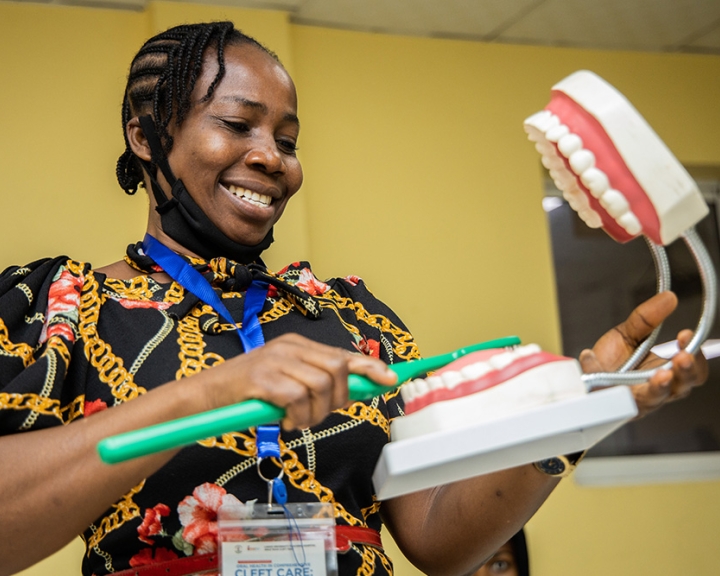
Safety and Quality Protocol in Dental Procedures
Patient safety is Smile Train’s number-one priority. This protocol details the requirements that healthcare organizations providing dental care for people with clefts must meet.
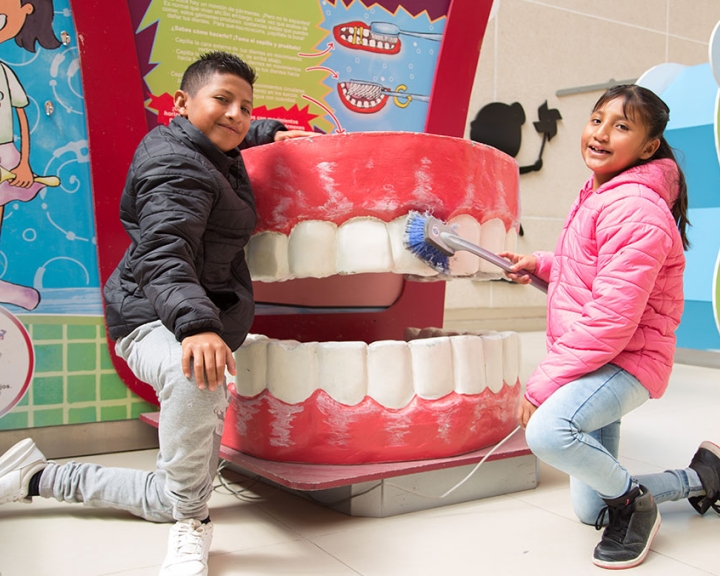
FDI-Smile Train Advocacy Guide
Smile Train will always advocate for including clefts as an essential focus area within international and national strategies for reducing the global burden of oral disease and advancing Universal Health Coverage.
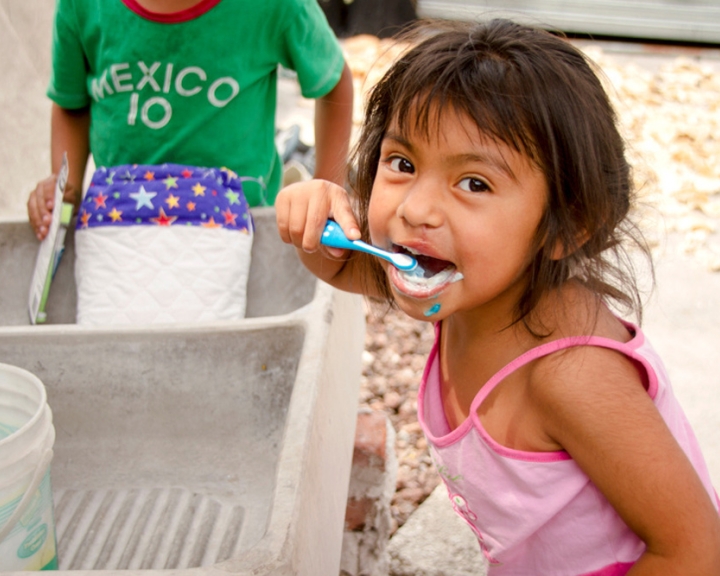
"Oral health providers’ contributions to quality outcomes in cleft care are immeasurable, yet widely misunderstood and underrated. Smile Train, FDI World Dental Federation, and Haleon’s partnership to create comprehensive guidelines and training materials on cleft-specialized oral health is a tremendous contribution to the global cleft and dental communities. It will empower providers globally to ensure children and adults with clefts can achieve improved oral health via prevention and access to quality services."
- Dr. Peter Mossey, Smile Train Global Medical Advisory Board Member; FDI Cleft Oral Health Expert; Panel Member and Director, WHO Collaborating Centre; Dean and Clinical Professor, University of Dundee
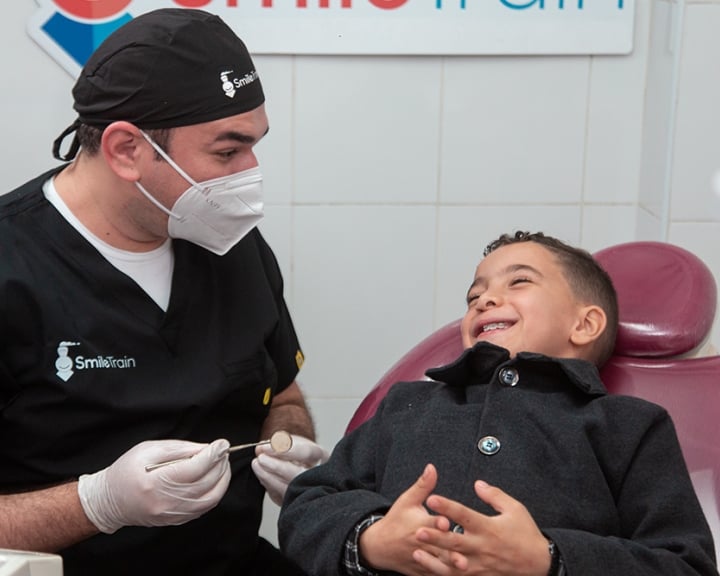
STOP Toolkit
This resource is designed to help you promote education and awareness of optimal oral health for children with clefts at your center.
This toolkit represents the collaborative efforts of oral health professionals, educators, and caregivers, including you. We firmly believe in the power of our partnership to positively impact the lives of children with cleft lip and palate. Together, we aim to ensure healthier smiles and brighter futures for our global cleft community.
Does Smile Train offer dental care grants to partners?
At the moment, no. The new Oral Health in Comprehensive Cleft Care Guidelines and the upcoming education resources from FDI, Haleon, and Smile Train aim to lay the foundation for this grant program in the near future. Please stay in touch with Smile Train to learn when these become available.
Can I volunteer to provide care around the world?
Smile Train does not send medical volunteers on surgical missions. We award grants to local cleft teams so they can provide sustainable, comprehensive, ongoing care to families in their own communities. If you are based in a country where we support local partners, please find the closest one to you and reach out directly to see if you can assist with providing cleft care.
What should I do if I meet a child with a cleft?
Please use the guidelines as a resource for providing local preventative and restorative care. You should also direct the family to their nearest Smile Train partner or write to info@smiletrain.org.
Do you know a child in need of cleft care?
Refer them to one of Smile Train’s 1,000+ local partners across 75+ countries.
Additional Questions?
Contact us here.
